After arriving on the Saturday morning we got straight on with setting up our camp, using old army ponchos to make dens to sleep under and whittling pegs out of willow.
Young Naturalists - Camping out
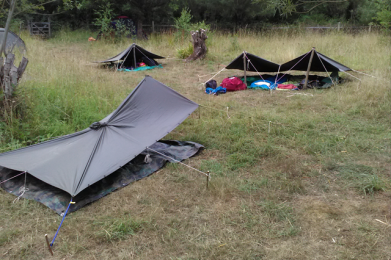
Camp Area
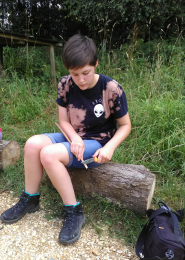
Whittling Tent Pegs
Whittling tent pegs
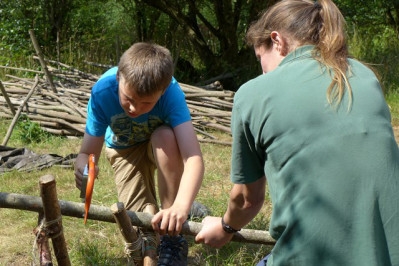
Sawing poles
Sawing poles
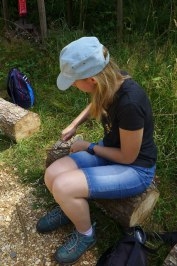
Whittling pegs
Whittling pegs
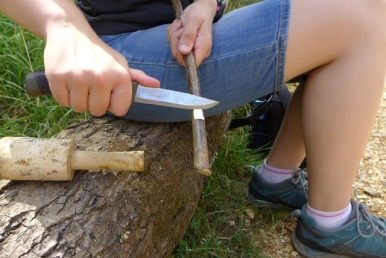
Whittling pegs
Whittling pegs

Trying on the ponchos!
Trying on the ponchos!
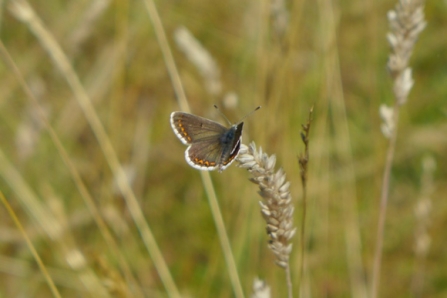
Brown argus in our camp area
Brown argus in our camp area
We then headed to the back of the Education Centre to sit by the pond and butterfly spot as part of the Big Butterfly Count. The Purple loosestrife proved to be very popular with the butterflies and we saw a large white, numerous small whites, a green-veined white and brimstones, along with a gatekeeper and painted lady by the bramble. We also watched the water for newts coming up to the surface and spotted a number of young frogs.
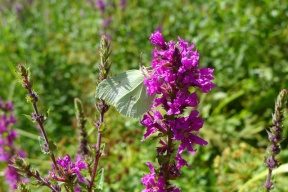
Brimstone
Brimstone
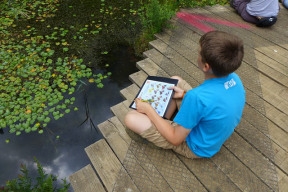
Butterfly counting
Butterfly counting
After lunch we headed up into the Forest, exploring the local Rockford and Ibsley Commons for a different view of the lakes. The bell heather was in flower and attracting lots of honey and bumble bees.
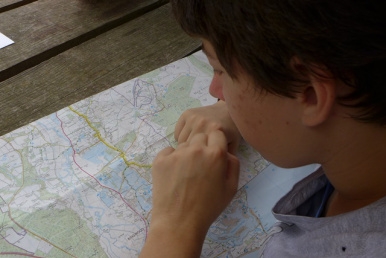
Consulting the map
Consulting the map
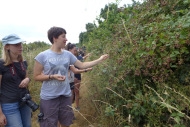
Blackberrying
Blackberrying
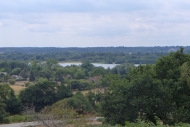
Looking towards Rockford Lake
Looking towards Rockford Lake
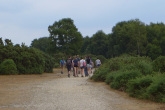
Rockford Common
Rockford Common

Honey bee
Honey bee

Bumble bee on heather
Heading toward Ibsley Common
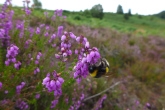
Bumble bee on heather
Bumble bee on heather
We paused for a while at the bridge over the Dockens Water, exploring this stretch of the river and taking a closer look at some of the plants before heading up on to the Common for another view of the reserve, this time Ibsley Water.
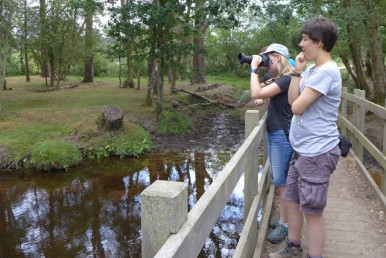
Photography from the bridge
Photography from the bridge
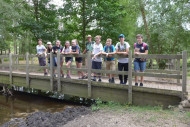
Group photo
Group photo
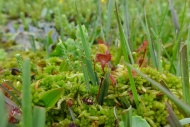
Sundew
Sundew
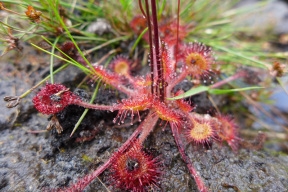
Sundew
Sundew
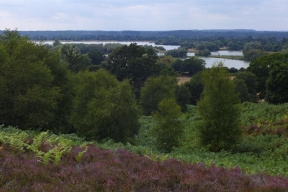
Looking towards Ibsley Water and Mockbeggar
Looking towards Ibsley Water and Mockbeggar
On arriving back at Moyles Court we paused by the ford for a paddle, although Jorge got wetter than most!
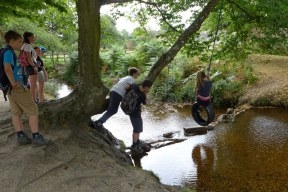
Having a play on the tyre swing
Having a play on the tyre swing
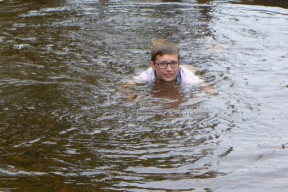
Jorge having a swim, it was just about deep enough…
Walking back along the Dockens we spotted this fabulous Chicken of the Woods fungi growing on an old log:
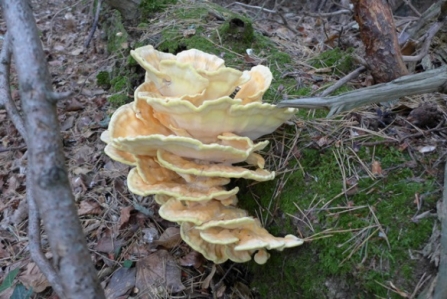
Chicken of the Woods
Chicken of the Woods
Arriving back at the Education Centre, it was time to empty the light trap from the night before so we could re-set it for the Saturday evening and we also set some mammal traps to see if we could catch any of our smaller resident mammals.
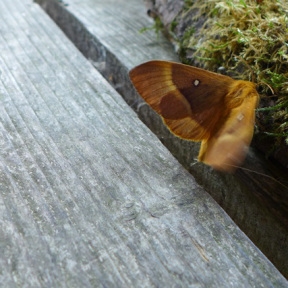
Oak eggar
Oak eggar
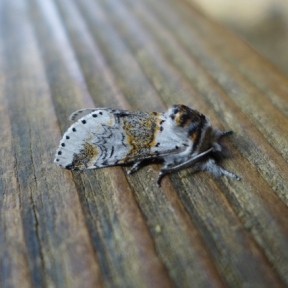
Sallow kitten
Sallow kitten

Preparing the mammal traps
Preparing the mammal traps
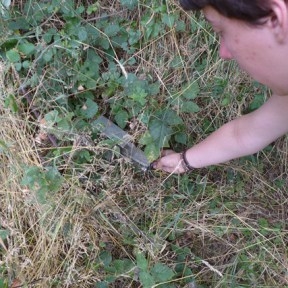
Positioning the mammal traps
Positioning the mammal traps
It was then time to think about food and the group did a great job of chopping the ingredients before tucking in to healthy wraps toasted over the fire followed by slightly less healthy popcorn and banana stuffed with chocolate and mini marshmallows…
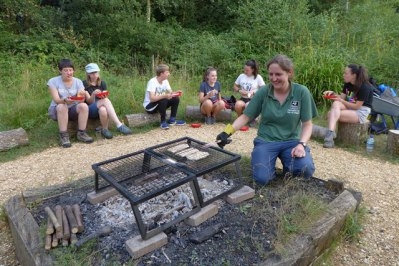
Toasting wraps over the fire
Toasting wraps over the fire
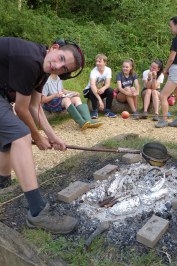
Lysander heating up the popcorn
Lysander heating up the popcorn
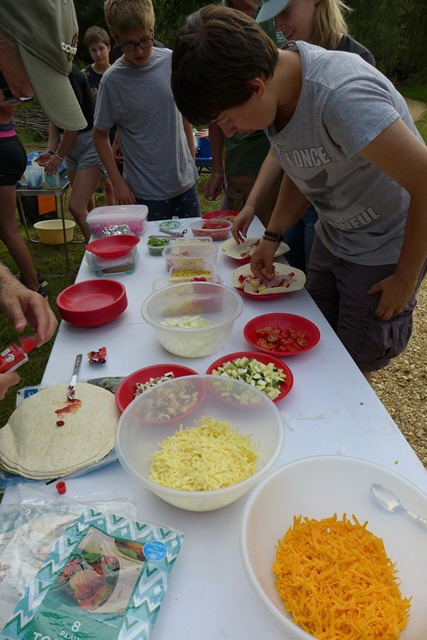
Our evening meal
Our evening meal
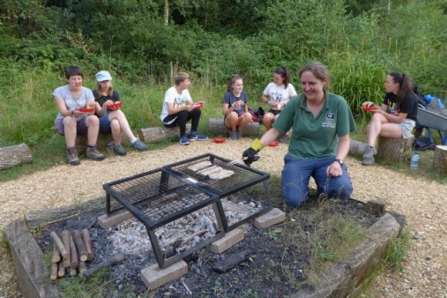
Toasting wraps over the fire
Lysander had also very kindly bought some of his left over Cadet rations to share with the group, cooking them through using his stove. Whilst not all sampled his food, we were pleasantly surprised by how nice it tasted!

Tomato and basil soup, tomato pasta salad and tuna mayonnaise
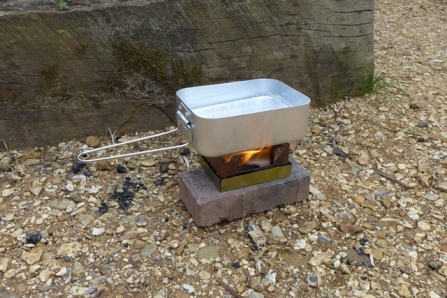
Lysander’s stove
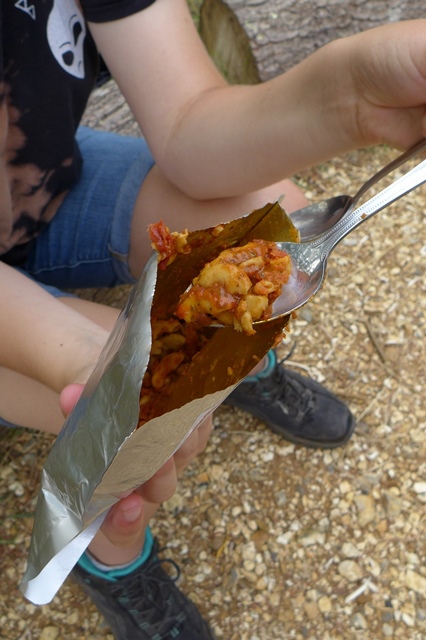
Tomato pasta salad
After eating we headed off on a night walk in search of bats, picking up pipistrelles on the bat detectors in the woodland and near Ivy South hide.
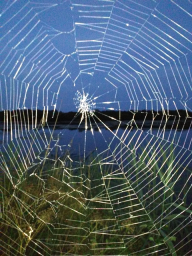
Spider's web
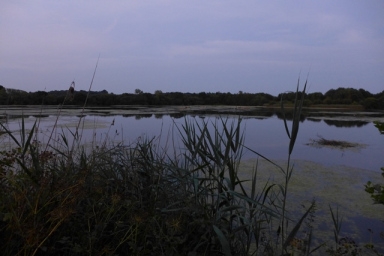
Ivy Lake
After convincing the group to get up bright and early on Sunday morning, we roused them at 5.30am and headed off up to Lapwing Hide for some early morning wildlife spotting.
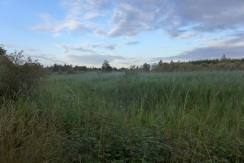
Reed bed on the way to Lapwing Hide
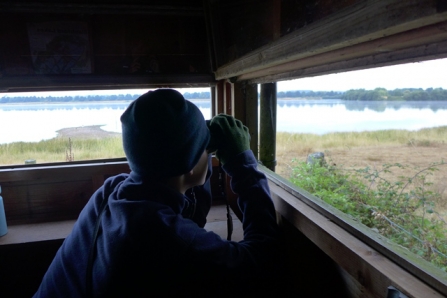
Birdwatching from Lapwing Hide
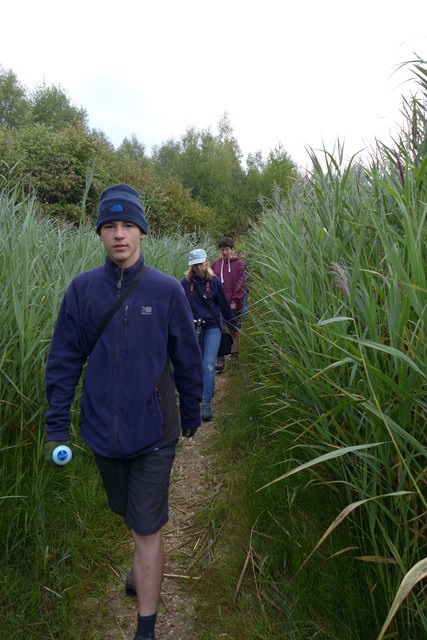
Early morning walk
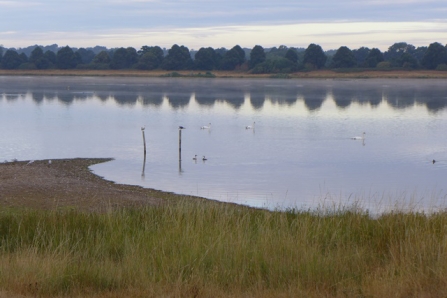
Ibsley Water
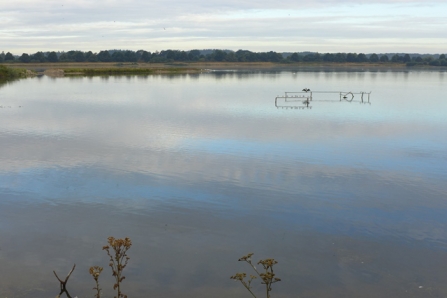
Ibsley Water from Goosander Hide
It was lovely and peaceful to be out on the reserve so early, and whilst we didn’t spot anything out of the ordinary we had a good wander and worked up an appetite for breakfast which we cooked over the campfire.
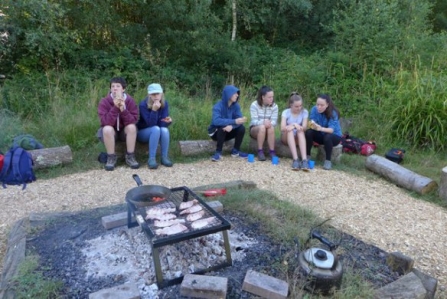
Breakfast, looking slightly sleepy
It was then time to check the mammal traps we had put out the previous evening, but sadly although a couple had been sprung we were unsuccessful. The two light traps however gave us 31 different species off moth to identify, along with a Dark bush cricket and an Oak bush cricket:
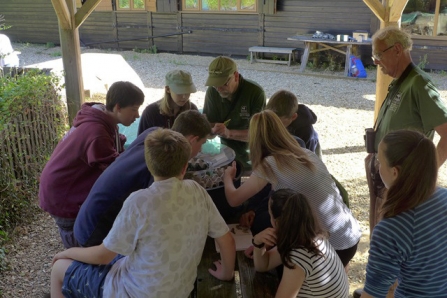
Looking through the light trap
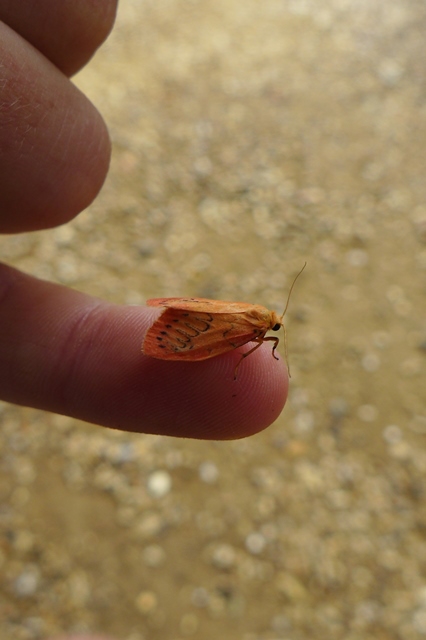
Rosy footman
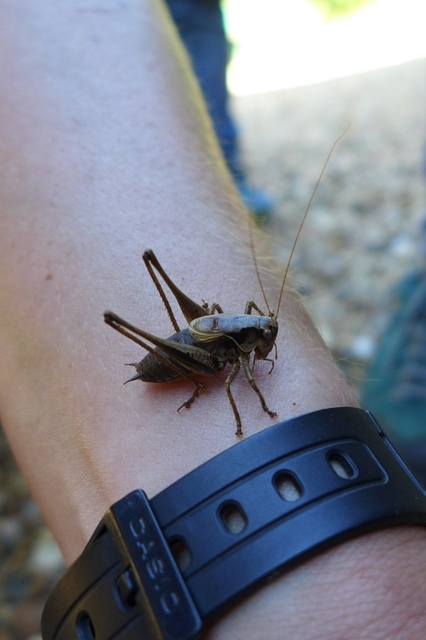
Dark bush-cricket
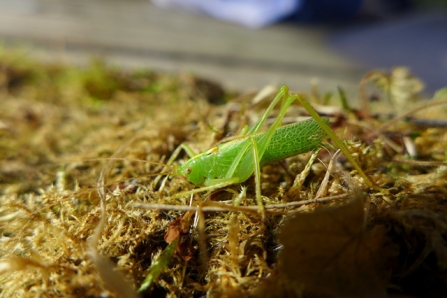
Oak bush-cricket
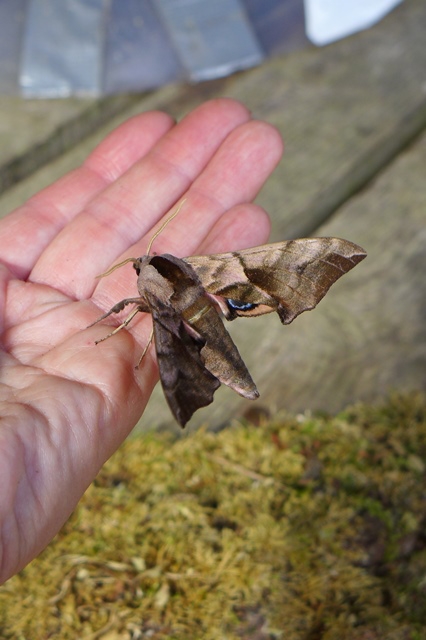
Eyed hawk-moth
After tidying away our camp and bringing everything back to the Centre it was time for the group to head off, a little sleepy but having spent a very enjoyable time overnight on the reserve.
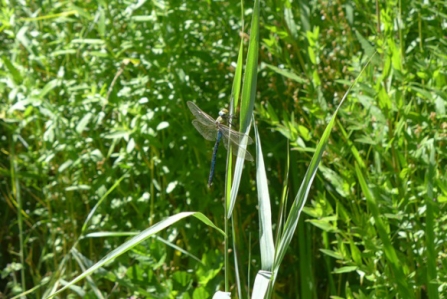
Emperor dragonfly at the Education Centre Pond
Young Naturalists is a monthly meet-up for nature lovers aged 13-17, and is kindly supported by funding from the Cameron Bespolka Trust. Get outdoors, learn practical skills, and help protect our wonderful local wildlife - what will you discover?

